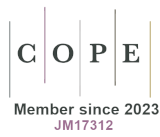e-mail: magdalena.cieslak@uni.lodz.pl
 https://orcid.org/0000-0001-5738-3522
https://orcid.org/0000-0001-5738-3522University of Lodz
e-mail: magdalena.cieslak@uni.lodz.pl https://orcid.org/0000-0001-5738-3522
https://orcid.org/0000-0001-5738-3522
University of Lodz
e-mail: agnieszka.rasmus@uni.lodz.pl https://orcid.org/0000-0001-5446-5573
https://orcid.org/0000-0001-5446-5573
The present volume aims to introduce a number of young scholars currently affiliated with the University of Lodz, where they have either just completed or are in the process of their Ph.D. programme. The papers illustrate a diversity of research interests, textual choices and methodological approaches that attest to the wide scope of academic inquiries in various disciplines within humanities at the University of Lodz. They analyse literary texts by Anglophone authors representing the international and intercontinental nature of English studies: Philip K. Dick’s A Scanner Darkly (1977), J.M. Coetzee’s Waiting for the Barbarians (1980), and Kazuo Ishiguro’s When We Were Orphans (2000). Each paper applies unique and interdisciplinary methodologies, which offer original readings of the novels. Agnieszka Jagła’s “The Transformative Potential of Trauma in Waiting for the Barbarians by J.M. Coetzee” uses trauma studies to explore the representation of traumatic experiences of the main protagonist to present the mechanisms of othering from a posthumanist perspective. Rafał Łyczkowski’s “Charles Dickens and Colonial Expansionism ‘Obscured’ in When We Were Orphans by Kazuo Ishiguro” reaches to intertextual references of Great Expectations in Ishiguro’s novel to address the complexity of the legacy of the British colonialism. Finally, Piotr Płomiński’s “From a Botched Body without Organs to a Plastic Brain. A Reading of P.K. Dick’s A Scanner Darkly” analyses the disintegration of a human mind, presented in a typical futuristic context, from an innovative perspective. Using Deleuze and Guattari’s Capitalism and Schizophrenia and Malabou’s concept of brain plasticity, the paper highlights the transformative potential of a posthuman body that seeks alternative modes of being. Apart from the three articles in the main section, this volume includes also a didactic paper by Joanna Matyjaszczyk, a lecturer and teacher at the University of Lodz. It analyses a medieval romance, The King of Tars, with the intention of offering a teaching manual for university lecturers who wish to discuss that text in class. The paper approaches The King of Tars from the perspective of the discourse of the Other, so it can also be helpful to those who wish to use a similar angle to study and teach other medieval texts. With this contribution, A.R.T. continues to offer a more diverse range of papers catering to various readership interests.

